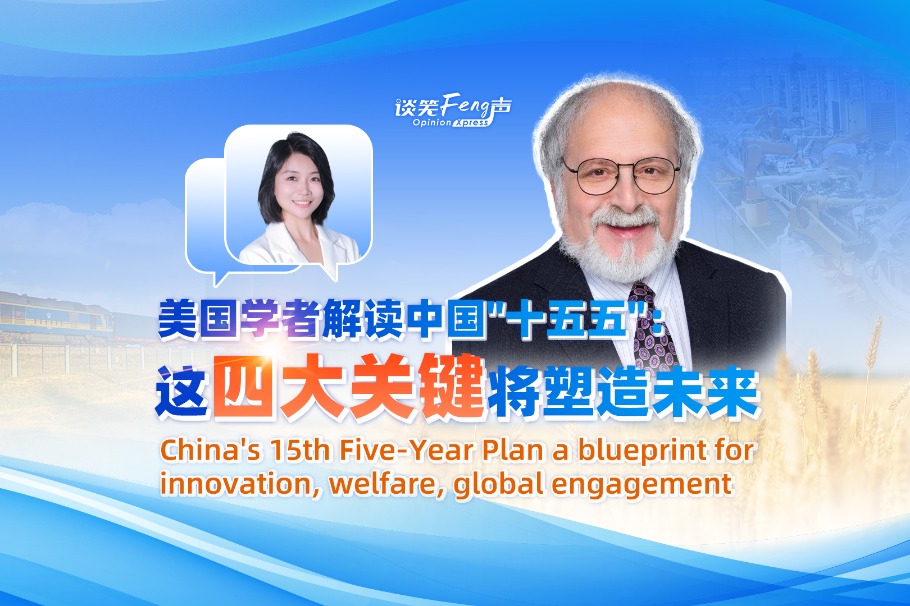Generating global interest

Despite technical challenges in industry that relies on customization, investment pays off for manufacturer PowerLink
Seven years ago, when PowerLink, the Shenzhen-based maker of power generators, established a factory in the United Kingdom, against the general trend of British manufacturing companies offshoring to China, many questioned its strategy.
PowerLink CEO Carol Yan says the company believed in the strength and history of the UK's manufacturing sector.
Seven years on, its investment has paid off. Diesel power generators made by PowerLink in the UK are now used in such places as hospitals, jails, factories, prisons, airports and banks in the UK and beyond. From 2013 onward, PowerLink UK's annual revenues have grown by 30 percent. This year's sales are forecast to be £20 million ($26.4 million; 22.3 million euros).
| A biogas combined heat and power generator supplied in 2015 by PowerLink to a farm in Tadcaster, in Yorkshire, the United Kingdom. Provided to China Daily |
Powerlink's UK factory in Leeds has an output capacity of 1,000 generators each year, for delivery to the UK, Europe, the Middle East and other Asian markets.
"Because the UK's manufacturing standards are high, manufacturing in the UK for global distribution also makes a lot of sense and helps us to receive global recognition," Yan says.
To grasp why a Chinese power generator brand has grown into a recognized and respected brand in a mature market like the UK, it helps to understand the technical demand required of this industry, which relies on customization.
For instance, providing a backup diesel power generator is highly demanding. Usually, when a main power supply is cut off, there is a 15-second delay before backup power kicks in, but locations such as intensive care units at hospitals and the monitoring rooms and alarm systems of prisons cannot tolerate a disruption to the power supply.
"Therefore, when we design our backup power solutions, we design them so that if there is any voltage drop of the main power supply, our backup power supply generator will automatically be switched on in preparation, to ensure a seamless transition," Yan says.

However, some locations, such as airports and hospitals, cannot allow the noise level of power generation go above a certain limit, so PowerLink has to design solutions that satisfy those demands as well.
PowerLink was established in Guangdong in 2001, when China was undergoing rapid reform and opening-up. Guangdong at the time was a manufacturing hub, known as the "factory of the world", benefiting from the region's cheap labor and a strong manufacturing supply chain.
"China's manufacturing and industrial sectors developed very fast, but the power generator sector was lagging behind this growth. We recognized this market gap and we decided to capture this market opportunity, to provide clean energy supply," Yan says.
From its Guangdong base, PowerLink championed a large range of products, including diesel generators, gas and energy products, air compressors and lighting towers.
Yan says the two main factors behind PowerLink's rapid growth are the company's global vision and its commitment to investment in research and development.

With factories in Shanghai and Leeds, and sales offices and warehouse facilities in Brazil, Australia and Indonesia, PowerLink was able to secure close working relationships with competitive manufacturing supply chain partners, and gather local market knowledge in order to make its products suitable for customers. It has a network of more than 100 dealers worldwide.
One-fifth of its 500 employees are in research and development and it launches more than 100 new products or updates of existing products each year.
Despite its success today, Yan concedes that PowerLink's development in the UK market was not always smooth. "In the early days of sales from the UK, we found it hard because the market didn't know about us, and we didn't have reference cases," she says.
Fortunately, PowerLink had a UK distributor, which helped it acclimate to the local market. The distributor advised PowerLink on a range of important decisions, from choosing the location for its factory, to constructing the factory, to hiring workers. A senior manager from the distributor acted as PowerLink's consultant and gave Yan's team "lots of great advice and information", she says.
Gradually, PowerLink built a reputation by selling small power generators. "From there we started to sell to larger projects, and now we have established a good industry reputation," Yan says.
One key project for PowerLink in the UK is supplying a biogas combined heat and power generator to a farm in Tadcaster, a market town in North Yorkshire. The farm has a lot of animal and plant waste, which it turns into biofuel. Power-Link's generator helped to turn this biofuel into energy, which the farm uses for its own activities, sharing excess energy with neighbors.
Another example is its supply of a combined heat and power generator to a gym near Liverpool. Initially, the gym was generating electricity and heat through two boilers for its spa and swimming pool. After installing PowerLink's combined heat and power generator, the gym reduced electricity use by half, thanks to the efficiency of the combined heat and power generator.
PowerLink's UK team has also collaborated with the United Nations to supply about 2,000 power generators to refugee camps in Palestine.
"We won the contract based on our excellent technology, design and price. The users gave us very good feedback," Yan says.

Her team has also sold power generators to a large shopping mall in South Africa and a US military project.
Despite PowerLink's commercial success, Yan admits that her team still faces cultural challenges as it expands. In the UK, for instance, her team's local employees emphasize balancing work and private life which, she says was quite a lesson for her, since she comes from a culture that encourages hard work over private life.
"Consequently, we learned to invest more effort in explaining those differences to potential candidates during the job interview process, and we make sure they understand and are happy with our corporate culture before becoming our employees," she says.
"We also bridge this cultural gap through extensive communication, through our weekly and monthly meetings, so that our employees are kept more up to date with our expectations," she says.
Another challenge is the energy market's constantly changing rules. For example, newly proposed regulations in the UK see some authorities expecting to charge owners of diesel cars a toll for driving in the most polluted cities from 2019 onward. Such "clean air zones" in parts of Birmingham, Leeds, Nottingham, Derby and Southampton could involve a £10-a-day toll ($13.20; 11.20 euros) for anyone driving a diesel car that's more than 2 years old.
"Such events inspire us to think about our diesel power generators and reflect on how we can better prepare ourselves toward future policy and market changes," says Yan.
cecily.liu@chinadailyuk.com
(China Daily Africa Weekly 10/27/2017 page30)
Today's Top News
- US scholar: China's 15th Five-Year Plan charts path to future
- Coding the law for smart governance
- China ready to take tougher steps over Takaichi remarks
- Mobile judicial teams ensure justice for all
- Historic cross-boundary marathon marks a milestone
- Preparations begin for new space mission































